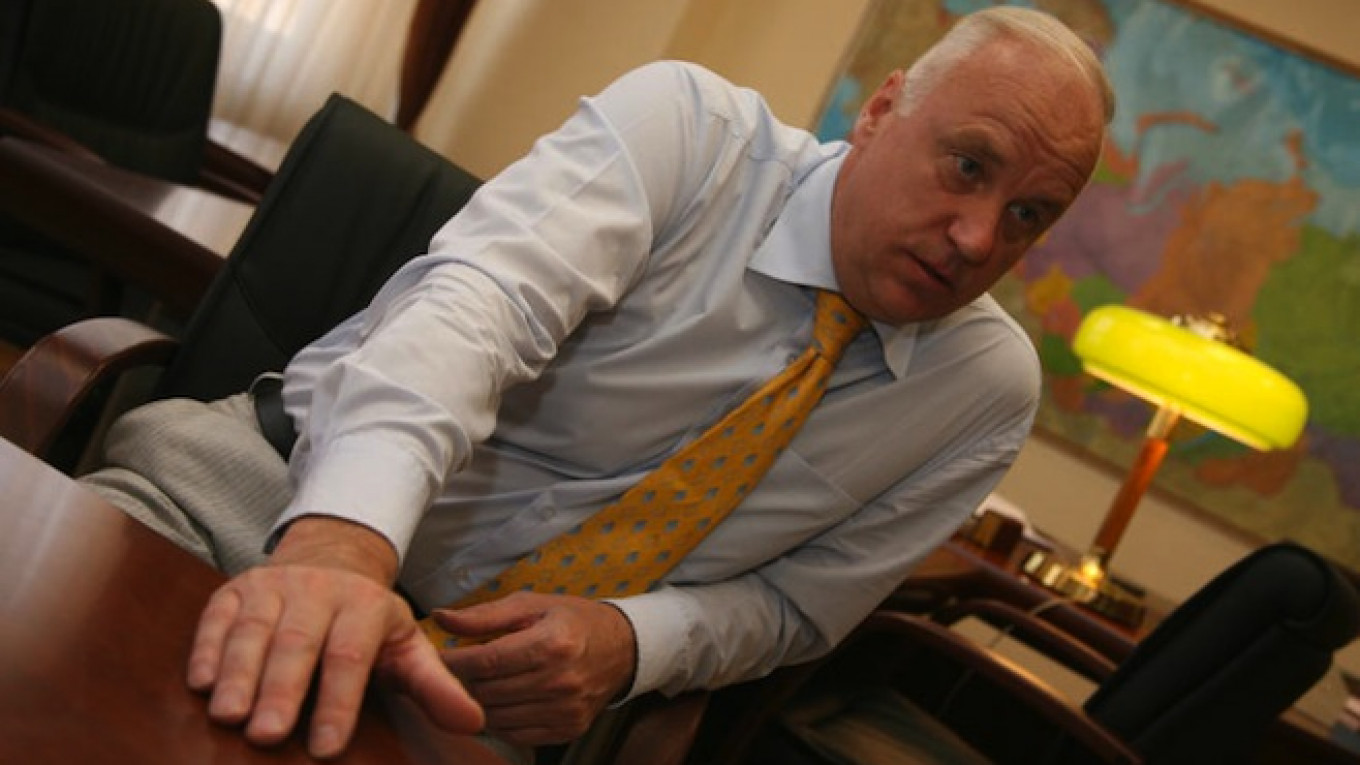The head of Russia's Investigative Committee has called for scrapping from the country's Constitution all mentions of adherence to international law, according to an interview with official government daily Rossiiskaya Gazeta.
The proposal by Alexander Bastrykin, which was part of an interview published by Rossiiskaya Gazeta on Thursday follows a Constitutional Court decision earlier this month ruling that Moscow can refuse to comply with European Court of Human Rights judgments.
Bastrykin praised the court's decision, but said the country needed to take it further.
"Without a doubt, it is necessary to eliminate from the Constitution the provisions according to which the widely accepted principles and norms of international law are an inalienable part of the legal system of the Russian Federation," Bastrykin, a lawyer by training, was quoted as saying.
Article 15 of the Russian Constitution reads that the "widely accepted principles and norms of international law and the international agreements of the Russian Federation are a component part of its legal system."
The article also says that in case of contradictions between Russia's international agreements and domestic laws, international agreements take precedence.
The article has been the object of Bastrykin's ire for months. He called it "legal sabotage" during a meeting with Investigative Committee officials in February, saying it should be abolished, Kommersant reported at that time.
The ruling by the Constitutional Court on the European Court of Human Rights was a step toward measures that Bastrykin has been advocating.
In its July 14 decision, the court ruled that "in exceptional cases, Russia can diverge from fulfilling the obligations imposed upon it if such deviation is the only possible way to avoid violating fundamental constitutional principles."
"The European Convention on Human Rights and the legal positions taken by the [European Court] based on [the convention], cannot undermine [Russia's] Constitution, which takes priority," the court said in a statement.
The Constitutional Court's decision was seen as opening the way for Moscow to avoid paying compensation to former shareholders of Mikhail Khodorkovsky's defunct Yukos oil company. The European court ruled last year that the handling of Yukos assets violated its shareholders' rights, and ordered Moscow to pay compensation to them.
Bastrykin told Rossiyskaya Gazeta that Russia needs to "continue and expand" the Constitutional Court's decision to avoid "legal collisions," adding that the Constitution — adopted in 1993 — may be due for a thorough overhaul.
"Beside the provisions on the priority of international law, an array of other constitutional provisions could be corrected, considering the more than 20-year service of our Constitution," Bastrykin was quoted as saying. He did not elaborate on what provisions he thought should be changed.
The issue of Russia's abidance by international law and treaties has repeatedly been called into question since Moscow annexed Crimea from Ukraine in March 2014. Western governments and Kiev have accused Russia of violating international law and agreements with Ukraine, including the 1994 Budapest Memorandum — which reaffirmed Ukraine's territorial integrity in exchange for the country agreeing to give up nuclear weapons — and the 1997 Friendship Treaty between Russia and Ukraine.
A Message from The Moscow Times:
Dear readers,
We are facing unprecedented challenges. Russia's Prosecutor General's Office has designated The Moscow Times as an "undesirable" organization, criminalizing our work and putting our staff at risk of prosecution. This follows our earlier unjust labeling as a "foreign agent."
These actions are direct attempts to silence independent journalism in Russia. The authorities claim our work "discredits the decisions of the Russian leadership." We see things differently: we strive to provide accurate, unbiased reporting on Russia.
We, the journalists of The Moscow Times, refuse to be silenced. But to continue our work, we need your help.
Your support, no matter how small, makes a world of difference. If you can, please support us monthly starting from just $2. It's quick to set up, and every contribution makes a significant impact.
By supporting The Moscow Times, you're defending open, independent journalism in the face of repression. Thank you for standing with us.
Remind me later.


